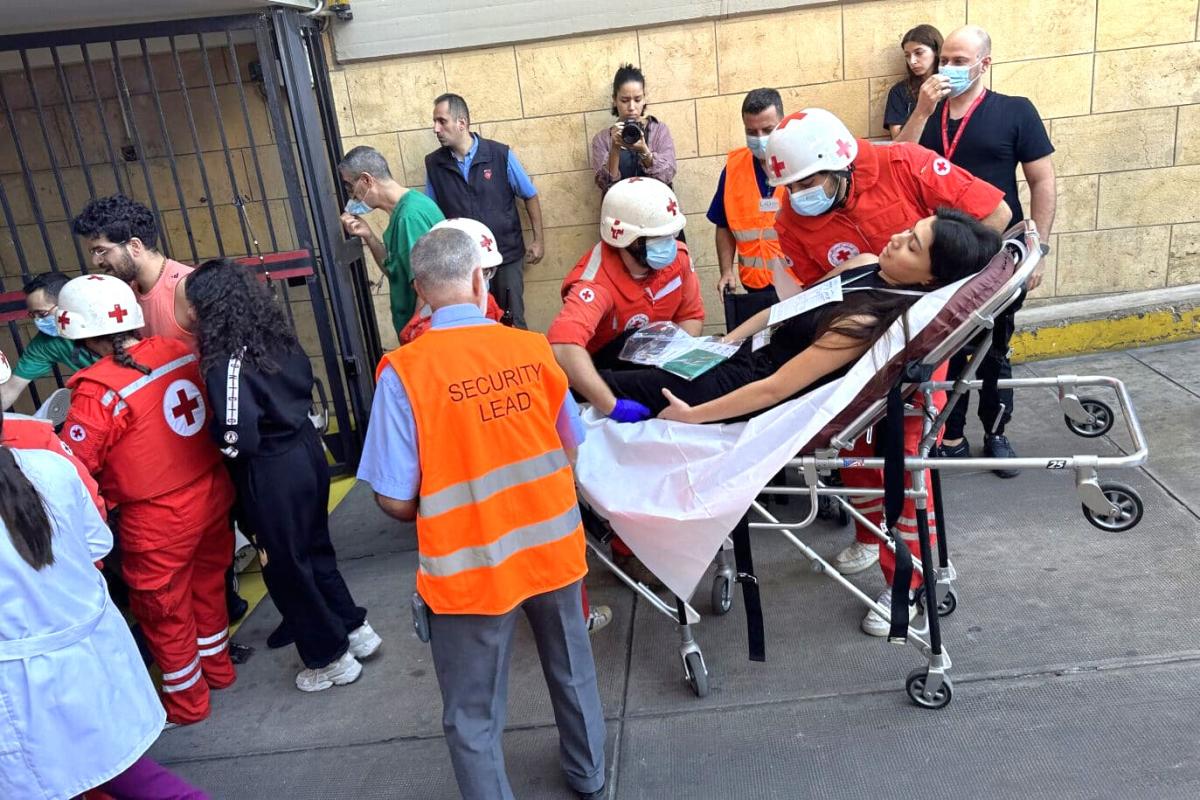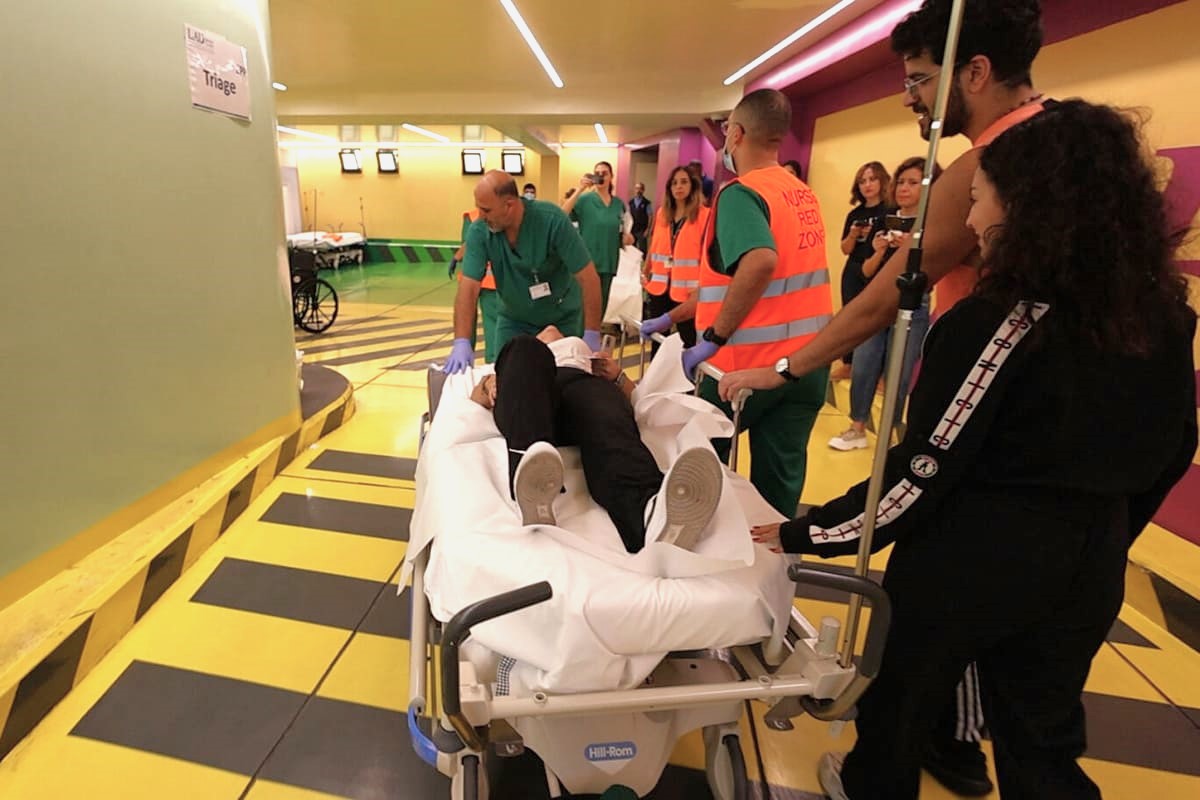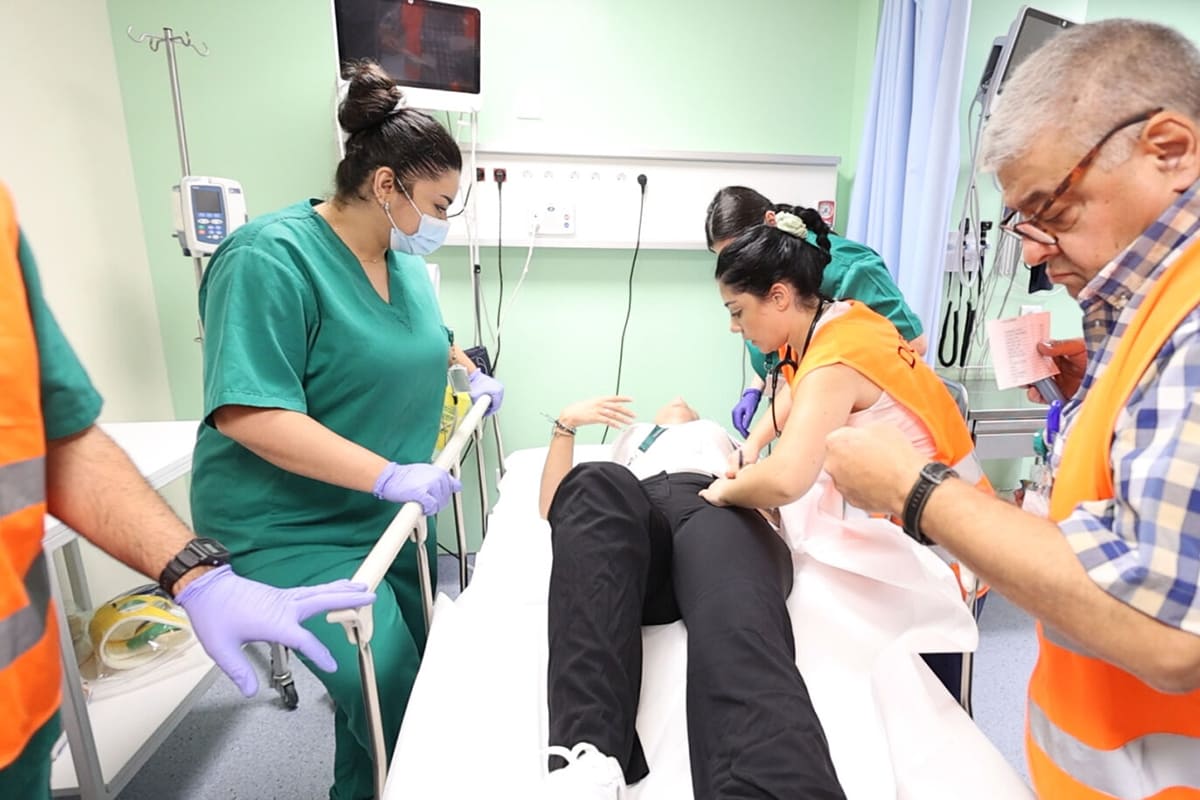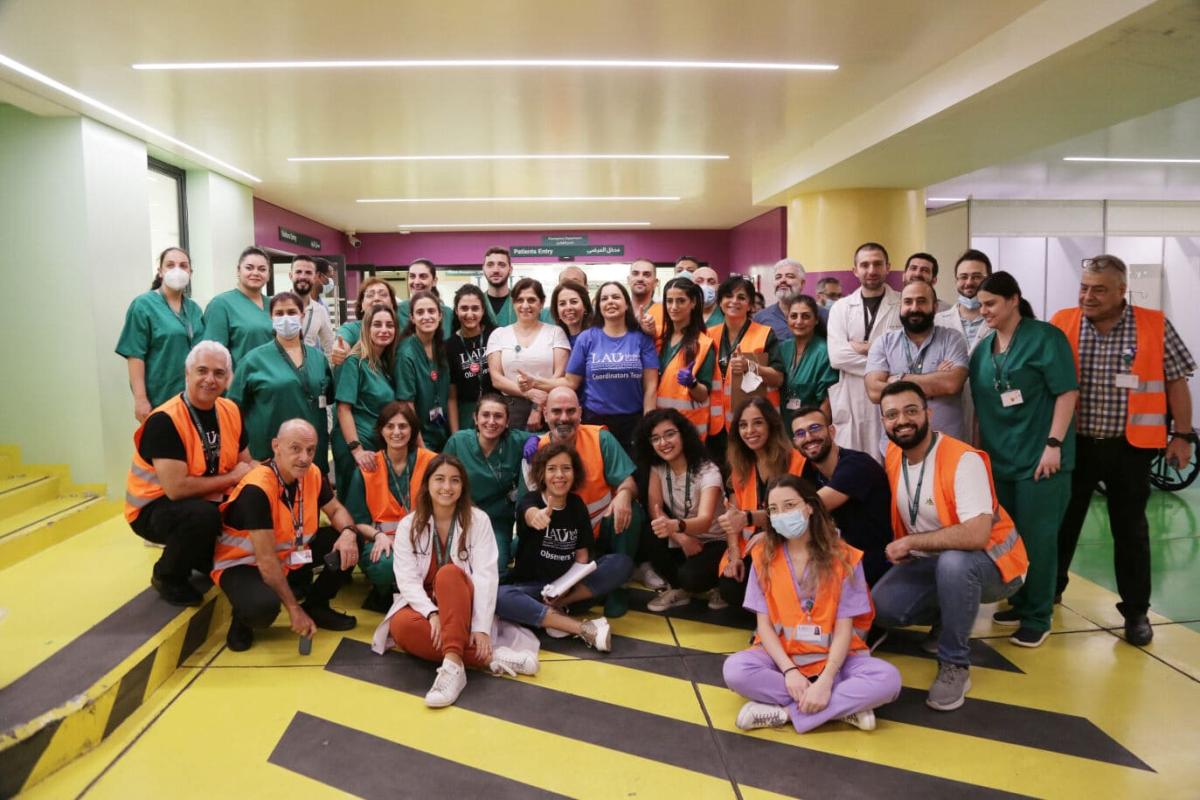Testing Hospital Preparedness for Times of Crisis
The LAU Medical Center-Rizk Hospital conducts an emergency drill as an anticipatory measure against potential disasters.
Accordingly, the LAU Medical Center-Rizk Hospital organized an emergency drill in collaboration with the Red Cross on November 4 at its ambulatory entrance and emergency room to evaluate its readiness for handling mass casualties while ensuring optimal patient care. It was the first in a series of drills planned for the rest of the healthcare facility, including the intensive care unit, operating rooms, laboratories, and medical imaging department.

“This is the first live drill to be conducted at such a large scale, with more than 100 simulated injuries carried out by volunteering students,” said Dr. George Ghanem, deputy CEO of the medical center.
Physicians, residents, students and other medical center staff, who had undergone several training sessions by the hospital’s emergency committees, honed their skills in effective triaging, zoning, and dispatching of the 100 volunteers portraying different injuries.
The nursing team, led by Christelle Azar, the head nurse in the emergency room, actively participated in both the training sessions and the on-site drill. The experience, said Azar, “provided us with a valuable opportunity to assess our preparedness.”

“During mass casualty events, the presence of numerous residents and interns alongside the physicians is crucial to managing the influx of patients with various and unpredictable types of injuries,” said Dr. Adnan Awdeh, the chief medical officer at the LAU Medical Center-Rizk Hospital. “Residents from each department are assigned to the ER to coordinate with their attending physicians on incoming cases.”
According to Dr. Toufic Chaaban, clinical assistant professor and co-director of the internal medicine clerkship at the LAU Gilbert and Rose-Marie Chagoury School of Medicine, the drill is part of the training and assessment of the medical center’s emergency plan.
Following the August 4 explosion, the plan was revised to address the challenges encountered, such as the failure of patient case documentation and the collapse of communication systems.
Dr. Marianna El Helou, the head of the emergency medicine division at the hospital, led the revisions by introducing color-coded vests to differentiate various staff members during crises. A two-way radio was also implemented to prevent a communication breakdown when mobile networks become unreliable.

Her firsthand experience in the aftermath of the explosion offered valuable insights to the global healthcare community, which she has shared in conferences and training sessions at international universities, medical institutions, and organizations, including the World Health Organization.
“A comprehensive debriefing session will be conducted to discuss the effectiveness of our new policy in action,” explained Dr. Helou. In this session, “the on-site observer team will engage in discussions with the emergency committees, analyzing their notes to pinpoint the successful protocols and those that require further development,” she added.
Dr. Tony Zreik, LAU’s vice president for health affairs, stated that the emergency plans at the LAU medical centers and both university campuses will also be revised following the drill assessment.
In addition to equipping its staff with the necessary skills needed for disaster management, the LAU Medical Center-Rizk Hospital has also taken anticipatory measures regarding medical supplies and medications, said Dr. Ghanem. The medical center is also planning another drill in partnership with the Lebanese Army, he added.
